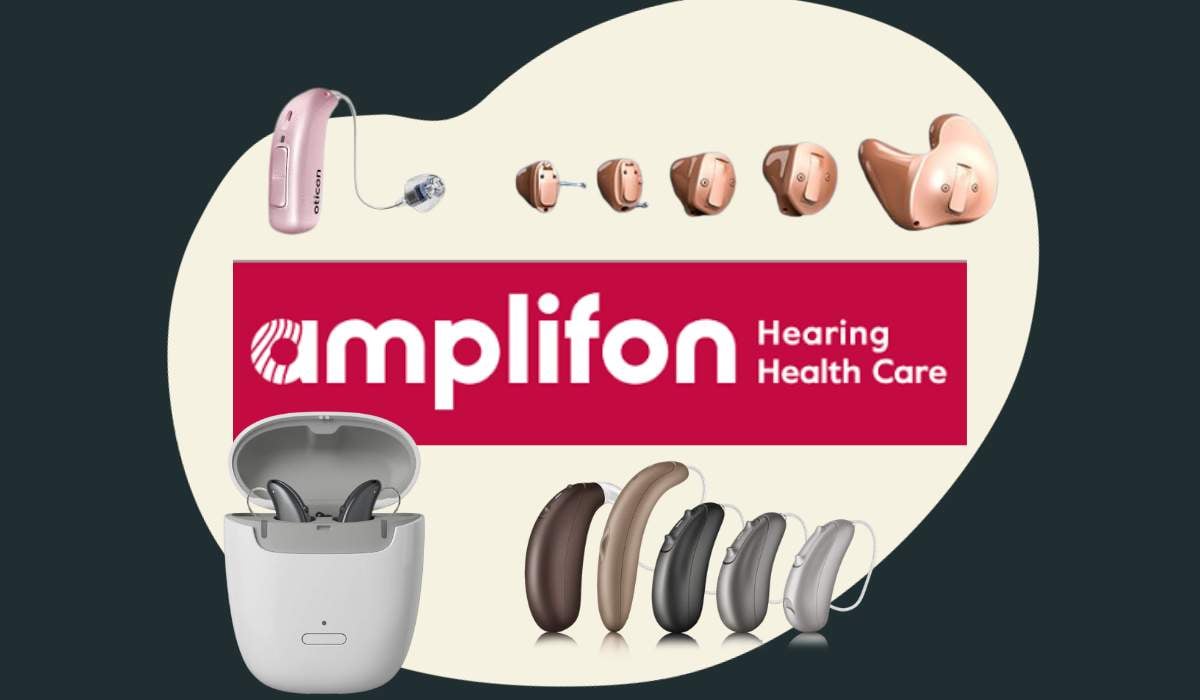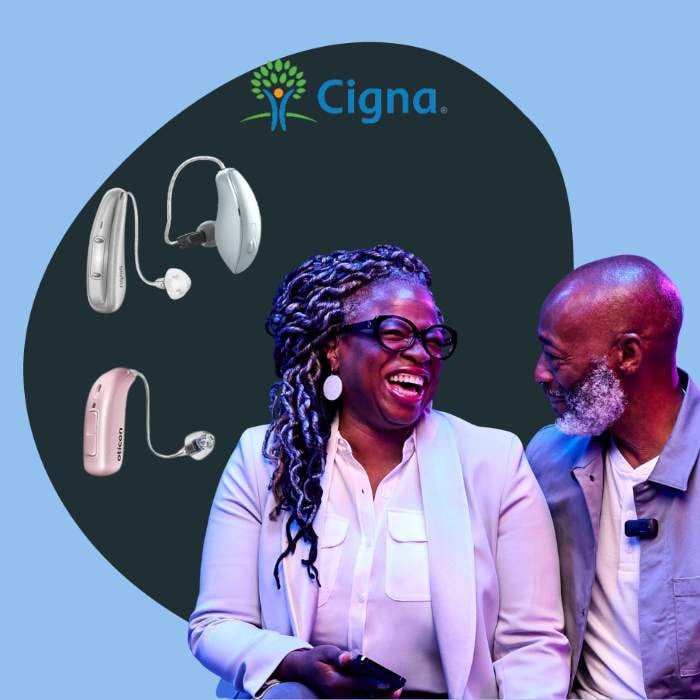As an experienced audiologist, I understand the profound impact that hearing aids can have on an individual's quality of life. They are not simply devices for better hearing, rather they serve as bridges to clearer communication and fuller participation in life's varied experiences.
Over the years of working closely with patients, I've seen first-hand the challenges many encounter when navigating the complexities of health insurance coverage for their hearing aids. It can be a daunting task, deciphering the fine print and understanding exactly what's covered and what isn't. With this in mind, I wanted to shed some light on one specific question that I often encounter: "Does Cigna cover hearing aids?"
Key Takeaways
- Cigna hearing benefits vary significantly by plan
- Benefits range from $500 per ear with no test co-pays to no coverage
- Cigna offers discounts on hearing aids through Amplifon
Background - Cigna

In my years of working with patients and navigating the labyrinth of health insurance, I've come to appreciate the importance of understanding the coverage provided by different health insurance plans. Cigna, one of the largest health insurance providers in the United States, offers a variety of coverage plans tailored to the unique needs of individuals nationwide.
The company's inception can be traced back to 1982 in Connecticut, where it was born from the merger of the Connecticut General Life Insurance Company and the Insurance Company of North America. Over the years, Cigna has progressively evolved, most notably in 2011 when it acquired HealthSpring and subsequently began selling Medicare Advantage plans.
Hearing Healthcare through Cigna
Hearing Care Solutions is the hearing health vendor for many Cigna plans. Cigna has a partnership with Amplifon Hearing Healthcare, which makes hearing aids and devices accessible to its members at a lower cost. Although Cigna offers several coverage options, there are pros and cons to consider when reviewing their plans.
Cigna Pros and Cons
Every healthcare plan comes with its unique set of advantages and disadvantages, and Cigna is no exception. Understanding these pros and cons can be instrumental in making informed decisions about your hearing healthcare. Let's delve into some of the key points to consider when evaluating the benefits and drawbacks of Cigna's hearing healthcare plans.
Pros of Cigna's Coverage
- One significant advantage of Cigna's health insurance is its affordability. Compared to other insurance providers, they offer low-cost plans, which broadens accessibility for a wider range of individuals.
- Additionally, Cigna's partnership with Amplifon Hearing Healthcare makes it easier for members to find and purchase hearing aids and other hearing-related devices at reduced costs.
- Due to this partnership, the financial burden is significantly lessened for those in need of these crucial devices.
Cons of Cigna's Coverage
- However, there are limitations to consider when choosing Cigna's coverage. It's worth noting that their Medicare Advantage plan is only available in 23 states, plus the District of Columbia, which can be a significant drawback for prospective members residing elsewhere.
- Another point to note is that the coverage provided under Cigna often falls short compared to other insurance providers.
- This could potentially translate to higher out-of-pocket costs for certain treatments or devices, which is an important factor to consider when reviewing and comparing their plans.
Popular Cigna Hearing Benefits
When it comes to choosing a plan that best fits your needs, Cigna offers a myriad of popular options that cater to a diverse range of requirements. Here, we will delve into some of their most sought-after plans and what they offer in terms of hearing aid coverage.
Cigna Dental Vision Hearing 3500
This plan is an excellent alternative for those looking for comprehensive coverage without a deductible. Cigna Dental Vision Hearing 3500 provides coverage for hearing exams up to $50. The plan's network providers consist of Hearing Care Solutions, ensuring a wide range of services from trusted professionals.
Moreover, hearing aids are covered under this plan up to a limit of $700, making it a viable option for those who require these essential devices.
Cigna Flexible Choice Dental, Vision, & Hearing
Unlike the previously mentioned plan, the Cigna Flexible Choice Dental, Vision, & Hearing plan is a discount program rather than an insurance plan. As such, it operates slightly differently. Members of this plan have to contend with a 12-month waiting period before they can access its benefits.
However, once this period has elapsed, members can save up to $500 per year on hearing aids, hearing exams, and repairs, making substantial savings for those in need of regular hearing healthcare.
Cigna Connect
Cigna Connect is a health plan available on the Health Insurance Marketplace. This plan is highly regarded for its affordability and extensive network of healthcare providers. As for hearing aid coverage, Cigna Connect does not cover hearing aids but typically provides a significant discount on hearing aids through their partnership with Amplifon Hearing Healthcare.
Cigna Healthspring (Medicare Advantage)
Cigna HealthSpring, Cigna's Medicare Advantage plan, is a widely chosen option by seniors. Cigna-HealthSpring Advantage (HMO) and Cigna-HealthSpring Preferred (PPO) are two popular Medicare Advantage plans offered by Cigna.
These plans typically provide coverage for hearing aids of up to $700/ear every three years and do not have a co-pay for evaluation and hearing aid fitting. However, availability is limited to certain states. It's worth noting that the plan offers coverage for hearing exams, fittings, and adjustments, yet the extent to which hearing aids are covered may vary.
Cigna SureFit
Cigna SureFit is a plan designed for small businesses, offering competitively priced and comprehensive coverage. The plan includes preventive care and wellness programs. When it comes to hearing aids, there is no coverage under this policy. However, discounts are sometimes available through Cigna's partnership with Amplifon.

How the Process Works with Cigna
The process of obtaining hearing aids through Cigna is systematic and customer-oriented. Here is a step-by-step guide to the process:
- Hearing Evaluation: The first step involves a comprehensive hearing evaluation conducted by qualified professionals within the Cigna network. This examination helps assess the degree of hearing loss and the best course of treatment to address it.
- Provider Consultation: After the evaluation, the healthcare provider will discuss the results with you and go through the different hearing aid options suitable for your condition. They'll provide detailed information about each device, including features, benefits, and costs, allowing you to make an informed decision.
- Sign Paperwork and Order Devices: Once you've chosen the most suitable hearing aid, you'll be required to sign some paperwork to finalize the purchase. This typically includes an agreement on the payment terms and warranty details. Upon completing the paperwork, the healthcare provider will then place an order for your chosen hearing aids.
- Hearing Aid Fitting: When the hearing aids arrive, you'll need to return to the provider for a fitting. The provider will adjust the devices to your specific needs, ensuring they're comfortable and providing optimal amplification.
- Follow-up: After the fitting, a follow-up appointment will be scheduled to check the efficacy of the hearing aids and make any necessary adjustments. This is a crucial step to ensure your satisfaction and the effectiveness of the devices in improving your hearing.
Remember, the specifics of the process may vary depending on the specific Cigna plan you're enrolled in, so it's always best to confirm details with your healthcare provider.
Follow-Up Visits, Trial Period, and Return Policies
After you acquire your hearing aids from Cigna, you can expect a series of follow-up visits with your healthcare provider. These visits are designed to ensure that the devices are functioning correctly and that any necessary adjustments are made for optimal performance and comfort. Additionally, you'll also be given the opportunity to address any concerns or queries related to the use and maintenance of the devices.
Cigna also offers a trial period for the hearing aids, allowing you to test the devices in different environments and situations. This period typically lasts for 30 to 60 days, though the exact duration may vary based on the specific plan and policy. If during this trial period, you're not satisfied with the hearing aids' performance, you can return them without penalty.
As for the return policies, they vary depending on the specific plan and the hearing aid manufacturer's policies. Generally, if you decide to return the hearing aids within the trial period, you may be entitled to a full or partial refund. It's crucial to discuss the details of these policies with your provider before making a purchase to ensure you understand all the terms and conditions.
Final Thoughts
In closing, we fully understand that dealing with hearing loss can be a challenging journey. The decisions you make about your auditory health are significant, and it can be daunting when faced with a multitude of insurance plans, coverage details, and hearing aid options.
With Cigna's diverse range of plans, from the Cigna Connect to Cigna HealthSpring and others, it's our hope that you have a better idea of what to expect when it comes to your hearing aid coverage benefits. Always remember, the goal is to enhance your quality of life through improved hearing.
As you navigate this process, don't hesitate to ask your healthcare provider any questions — it's important to know your benefits and what you can expect when it comes to hearing healthcare.






